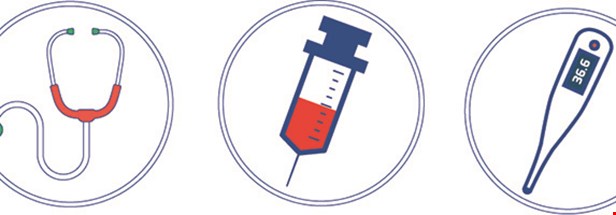Medical Devices Regulation Now Officially Published
 ©EPF
©EPF
On 16 June the Medical Devices Regulation adopted by the European Parliament and the Council of the European Union has been published. EPF, which was involved in the consultation process since 2012, provides a patients’ perspective on the resulting compromise.
No one can deny that compared to the current Directive, the new Regulation addresses many safety concerns. To begin with, rules for clinical investigations are improved – clinical investigation will now have to be registered and bound by ethical review.
Some improvements can also be noted regarding the conformity assessment. Responsibilities of national competent authorities, notified bodies and manufactured are clarified. Notified bodies will in particular have to ensure their personnel have the appropriate clinical expertise, and a joint assessment procedure is established to oversee cases of non-compliance with the Regulation.
Reprocessing was singled out by EPF as a key safety topic in our position. We welcome the new provisions of the Regulation for reprocessors, and the rights of Member States to forbid or restrict reprocessing on their territory.
A key milestone for patients is that Member States will encourage and enable reporting by patients and other users of suspected serious incidents.
However, we regret to see some safety provisions being dropped from the European Parliament position:
- · In the final text, only serious incidents with devices are addressed whereas EPF had called for all incidents including use errors to be monitored, ensuring better patient safety.
- · The designation of notified bodies will remain a national competence, unlike the proposed system by the Parliament whereby for the assessment of high risk devices specialised notified bodies would be designated by the European Medicines Agency. EPF supported this proposal as the quality of the work carried out by notified bodies was pointed out as unequal in the past.
- · Although the involvement of patients and patients’ organisations is strongly encouraged, so far only the participation of a layperson in ethics committee is made compulsory.
Better information to patients needs the involvement of patient organisations
The Regulation shows commitment to patient empowerment through setting several provisions to inform patients about devices. For instance, patients needing an implantable device will be provided with key information on an implant card and online, notably on risks and precautions to be taken.
The newly set up ‘Eudamed’ database will also provide more information to the patients, with summaries of safety and performance assessment of high risk devices, and the results of clinical investigation being made public.
An important caveat is that there is no provision to involve patient organisations to ensure the information provided to patients and level of access to the database correspond with patient’s needs. We call on the European Commission and Member States to address this gap in the implementation of the Regulation, as we believe this is a condition to ensure quality information to patients, and to ensure that information on clinical investigations, vigilance post market surveillance and other aspects of medical devices provided publicly on Eudamed, are easily accessible.
Very little progress on patients’ representations on medical devices expert groups
Whilst there is now a provision that states that expert panels shall take into account information provided by patient organisations when preparing scientific opinions, this Regulation is a missed opportunity to ensure that the principles of patient involvement are put in practice. Article 78 point 8 merely evokes the possibility to invite organisation representing patients in subgroups of the Medical Device Coordination Group “as observers” rather than experts.
Contact: Laurène Souchet, Policy Advisor.
